Best Reef-safe Sunscreen Brands, According to Experts
The next time you take a dip in the warm waters of the Caribbean or Hawaii, think about this: you aren't just swimming in seawater. There may also be as many as 82,000 kinds of chemicals from personal care products that have made their way into the world’s oceans, according to a report by Marine Life, a marine conservation NGO. And one of the biggest and most permanent contributors to this massive pollution is sunscreen. In 2015, it was estimated that around 14,000 tons of sunscreen are ending up in the world’s coral reefs per year and causing irreparable damage.
“Eighty-five percent of the Caribbean coral reefs died before 1999 or 2000. That wasn’t global warming. It’s pollution,” says Dr. Craig A. Downs, Ph.D., executive director of Haereticus Environmental Laboratory.
So what makes sunscreen so deadly to coral reefs? A few years ago, after testing more than 50 sunscreen brands, Dr. Downs and his team started looking at specific chemicals and discovered that oxybenzone and octinoxate are the main culprits. The reason they are so widely used in sunscreen is that they absorb the harmful UV rays. Oxybenzone, for example, is toxic in four different ways: it causes damage to the DNA that may lead to cancer and developmental abnormalities, it is an endocrine disruptor, it causes deformations in juvenile corals, and, lastly, it leads to bleaching.
“Corals would normally bleach when the temperatures are above 31 Celsius [81.7 Fahrenheit] so it’s really warm water,” explains Dr. Downs. “[Oxybenzone] will cause corals to bleach at 78 degrees, and that’s non-bleaching temperature.” And it usually takes only a couple of hours for the chemicals to cause some serious damage.
Related: Long-sleeve Swimsuits Are Having Their Most Stylish Season Yet
Dr. Downs points out that certain preservatives found in sunscreens are also toxic: parabens such as the commonly used methyl paraben and butyl paraben, or phenoxyethanol, which was originally used as a mass fish anesthetic.
And it turns out that we aren't just seeing the devastating damage in our oceans, but tasting it, as well. While Dr. Downs was on a working visit at the Bahamas, he was talking to a government employee at dinner who shared how much he liked the coconut flavor of the local fish they were dining on.
“We asked the chef what kind of seasoning he put in it, and he said, 'just salt.' The coconut was some recombinant fragrance of sunscreen. That is a chemical fragrance. It’s a nasty, long-lasting fragrance that will accumulate in organisms and so we were tasting it in the fish,” Dr. Downs explained.
So what can you do next time you hit the beach to prevent further damage? First of all, forget about aerosols.
“[With an aerosol spray], the chemical ingredients are microscopic and [are] inhaled into the lungs, and dispersed airborne into the environment,” says Brian A. Guadagno, founder and CEO of Raw Elements, a Hawaii-based, coral-safe sunscreen company. After witnessing what toxic sunscreens can do to coral reefs, Guadagno — a former lifeguard — developed a non-nano zinc oxide–based sunscreen formula that is much safer for the environment. His company is now a member of The Safe Sunscreen Council, a coalition of companies working to raise awareness about the impact of toxic sunscreen ingredients on our planet.
Another safe alternative to oxybenzone and octinoxate is non-nano titanium dioxide. Before purchasing your next bottle of sunscreen, also check the list of for any of the toxic preservatives we mentioned.
Related: 12 Stylish Caftan Dresses for the Easiest Vacation Outfits Ever
Here’s the next big question a lot of us face when we choose sunscreen — should we go for a higher SPF or lower? Dr. Downs says the benefits of the former are overstated and it is actually more harmful to the environment because it contains a higher percentage of chemicals.
“They don’t statistically protect you anymore against UV radiation [above] SPF 30. So you just need to find a very good SPF 30 that has done the rigorous FDA-required testing for water resistance and that’s usually 80 to 90 minutes, and reapply every 80 to 90 minutes,” he suggests.
Both Guadagno and Downs agree on one thing — if you truly want to reduce the negative impact sunscreen has on reefs and marine life and to protect your skin, invest in good sunwear and sun accessories. Sun protective clothing with a UPF rating will prevent the sun’s rays from penetrating the fabric.
“So you wear the UPF sun-shirt and then you apply sunscreen to your face, neck, the back of your hands, behind your ears. Think of how much less sunscreen you are using,” says Dr. Downs.
Here, we rounded up our favorite reef-friendly sunscreen options to pack for your next beach vacation.
Thinksport SPF 50 Sunscreen
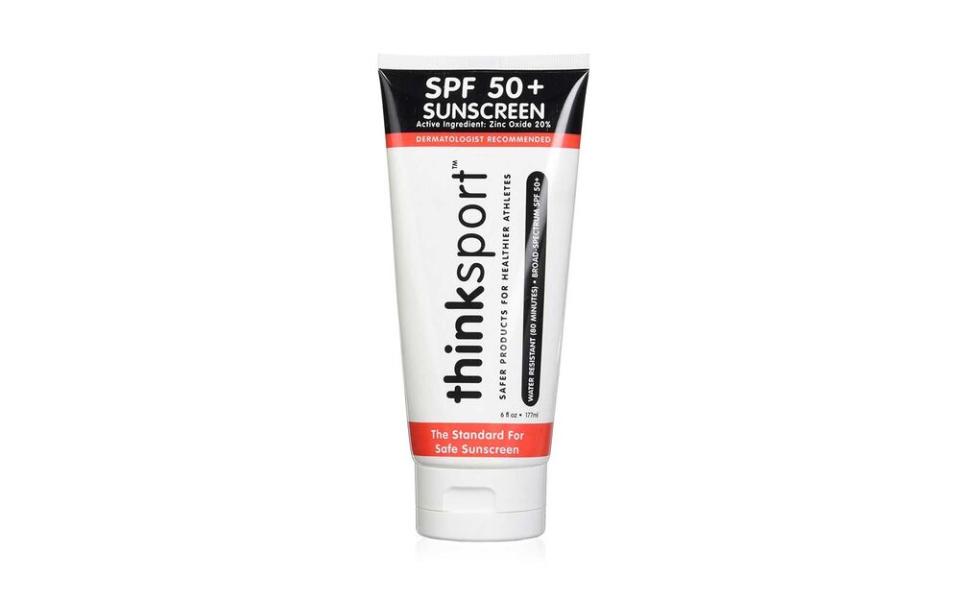
This sunscreen has a perfect score on EWG, and doesn’t contain any biologically toxic chemicals. It is water-resistant for up 80 minutes and is absorbed easily by your skin. The brand also makes a face sunscreen (amazon.com, $12)
To buy: amazon.com, $10
Kokua Sun Care Hawaiian SPF 50 Natural Zinc Sunscreen
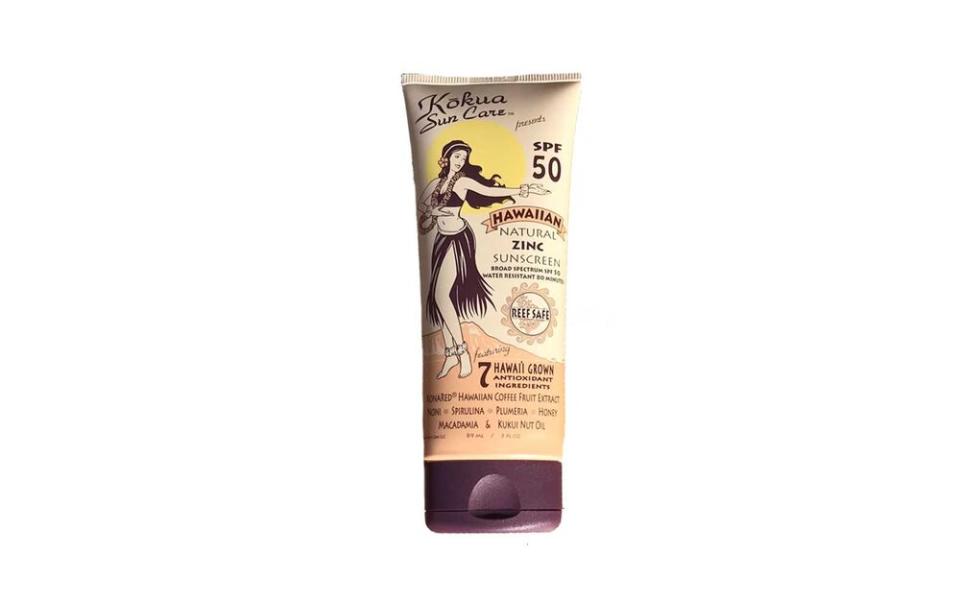
This zinc-based sunscreen is enriched with local Hawaiian spirulina, plumeria extract, honey, kukui nut oil, and other nourishing oils that moisturize and soothe the skin.
To buy: amazon.com, $30
All Good SPF 30 Sport Sunscreen Lotion
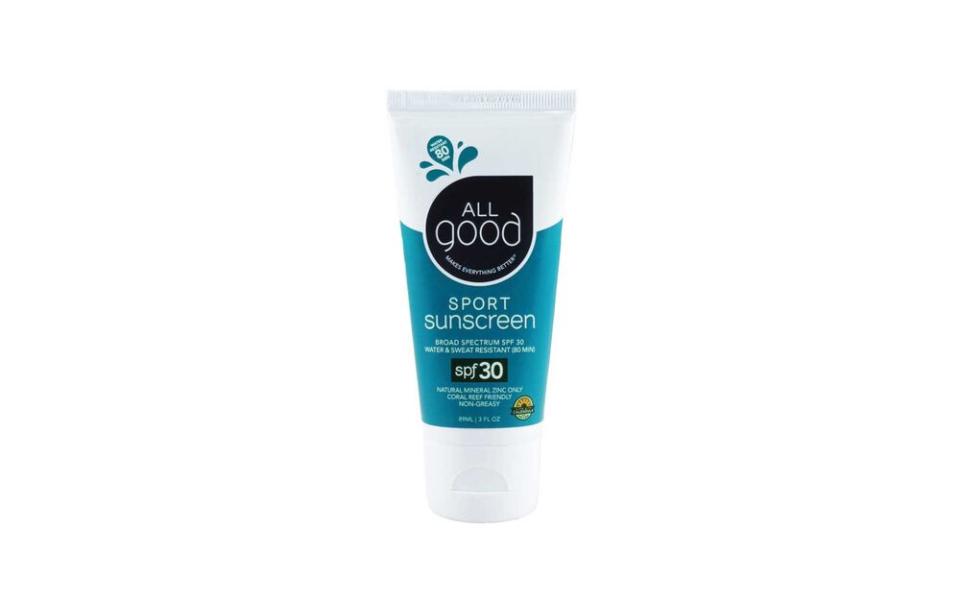
This non-nano zinc oxide-based sunscreen has a lightweight water-resistant formula and is rich in organic green tea, rose hips, and buriti oil for repairing damaged skin. Make sure your skin is well moisturized before applying.
To buy: amazon.com, $16
Suntegrity Natural Mineral Sunscreen
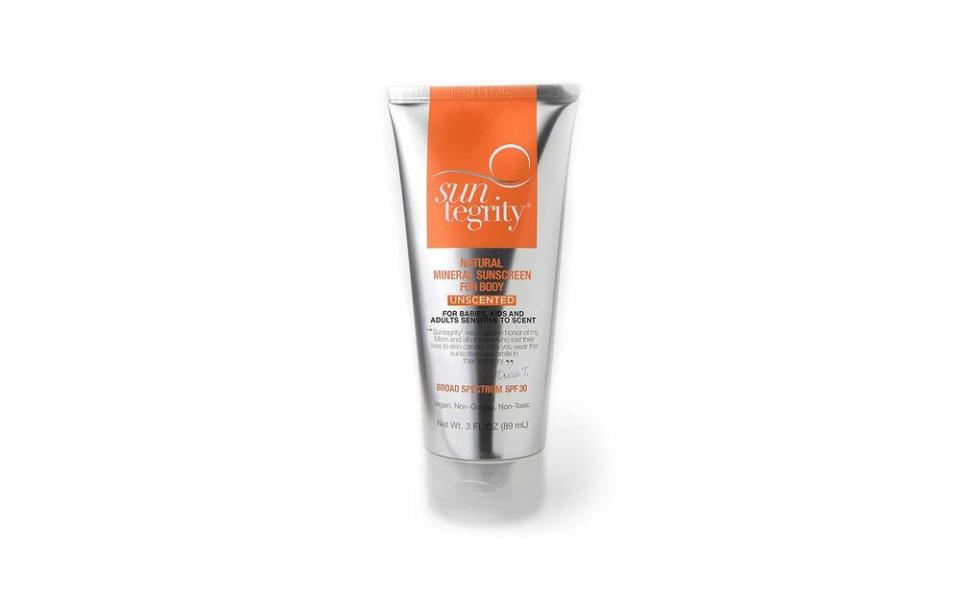
This unscented and vegan sunscreen is perfect for people with sensitive skin. It's also great for kids. It is free of parabens, phthalates, propylene glycol, mineral oil, synthetic dyes, sulfates, nanoparticles and chemical UV absorbers, and contains organic green tea extract, cucumber extract, and pomegranate seed oil.
To buy: amazon.com, $24
Badger SPF 30 Unscented Sunscreen Cream
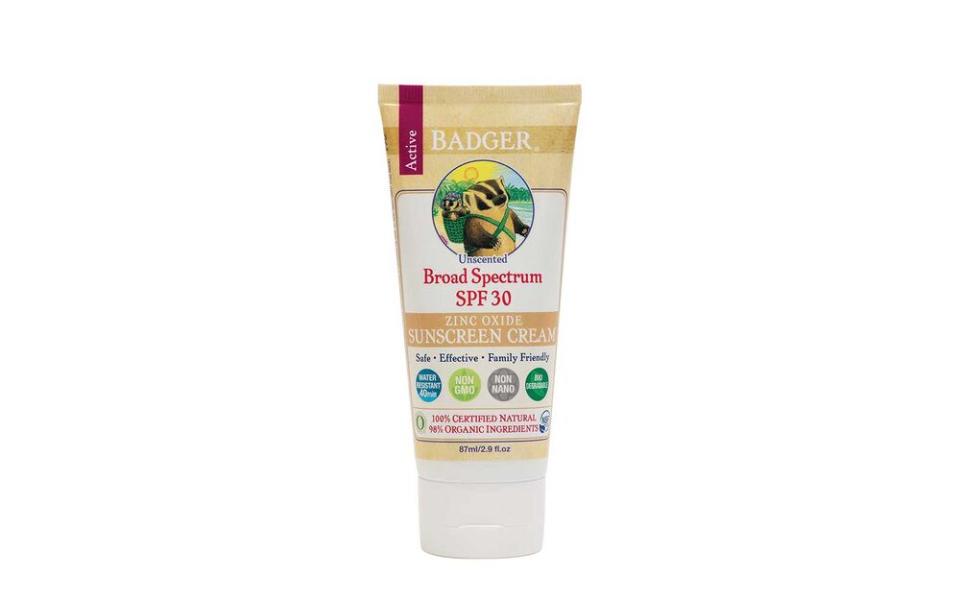
This sunscreen is water- and sweat-resistant for up to 40 minutes and contains moisturizing ingredients like sunflower oil, beeswax, seabuckthorn, and Vitamin E.
To buy: amazon.com, $20
Raw Elements SPF 30 Certified Natural Sunscreen
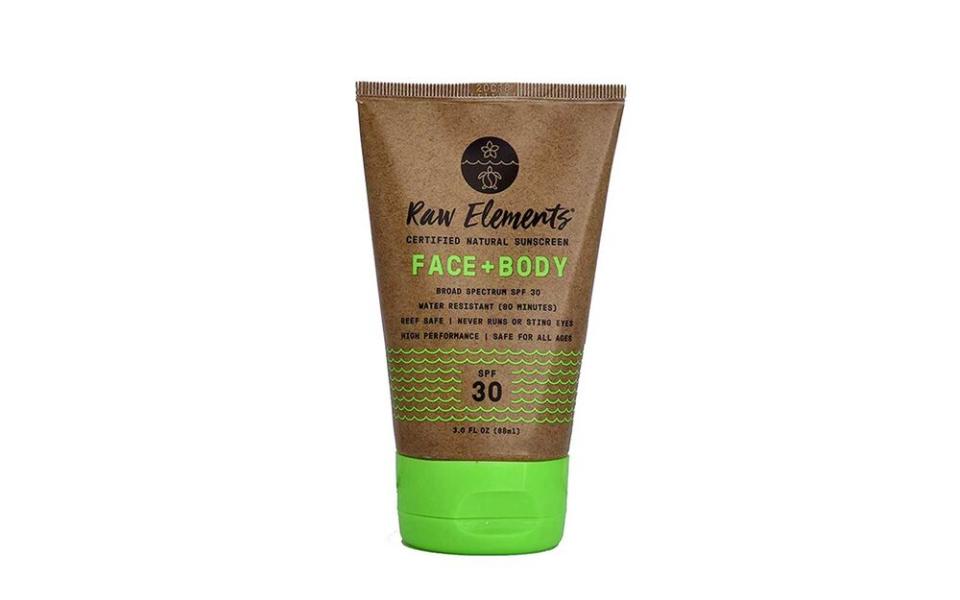
The active ingredient in this sunscreen is non-nano zinc oxide. It is biodegradable, reef safe, and water-resistant for up to 80 minutes.
To buy: amazon.com, from $18
Stream2Sea SPF 30 Mineral Sunblock
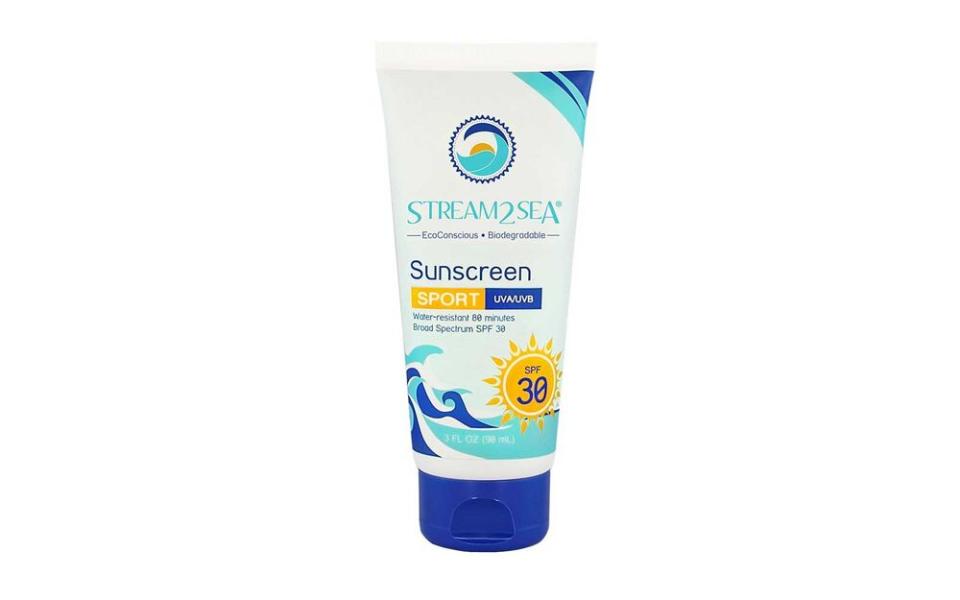
Protect your skin and marine life with this mineral-based sunscreen that contains a powerful antioxidant blend of green tea, tulsi, wakame, and olive leaf. Its active ingredient is non-nano titanium dioxide.
To buy: amazon.com, $17
Mama Kuleana Waterproof SPF 30 Reef-safe Sunscreen
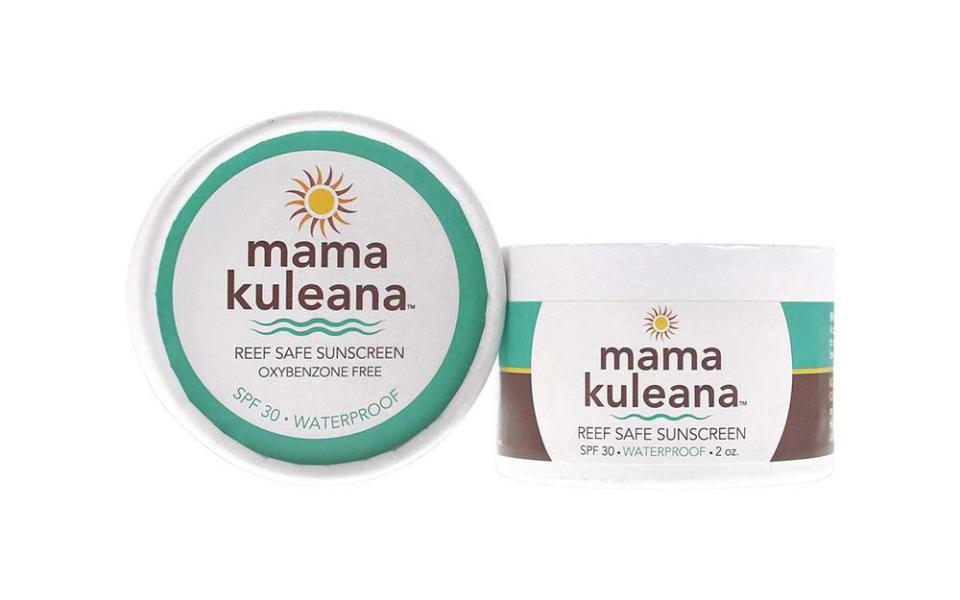
This Maui-based company works hard to ensure that its products, together with the packaging, are safe for the environment. Their sunscreen contains organic ingredients like coconut oil, almond oil, and shea butter.
To buy: amazon.com, $22
Manda Organic SPF 50 Sun Paste
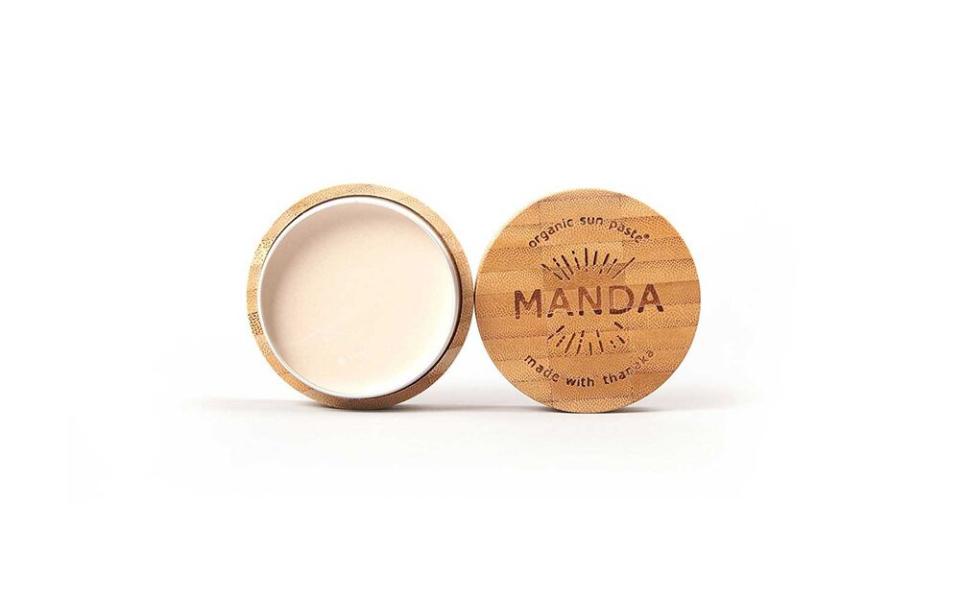
This sunscreen has a thick paste consistency, which allows it to stay on your skin for a long period of time even after you’ve been in the water. It contains thanaka oil, which is high in antioxidants, anti-fungal, anti-bacterial and has anti-aging properties. The catch? It does give you a little bit of a white tint instead of rubbing into the skin.
To buy: amazon.com, $28
Babo Botanicals SPF 30 Clear Zinc Lotion
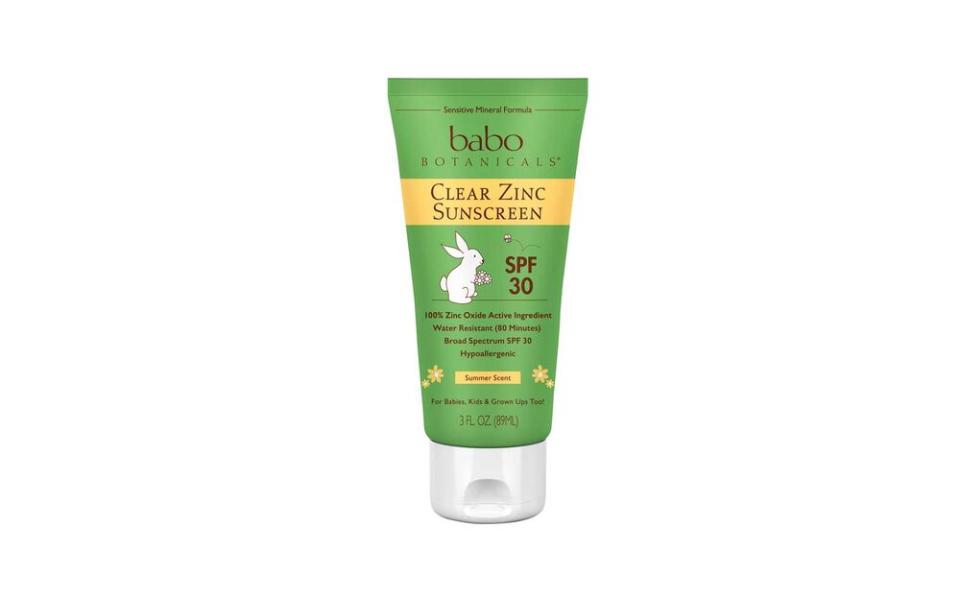
The zinc formula is ocean-safe and effectively protects your skin from sunburn. This sunscreen is also sulfate-, paraben-, phthalate-, fragrance-, and dye-free.
To buy: amazon.com, $16
Raw Love SPF 35 All-natural Mineral Sunscreen
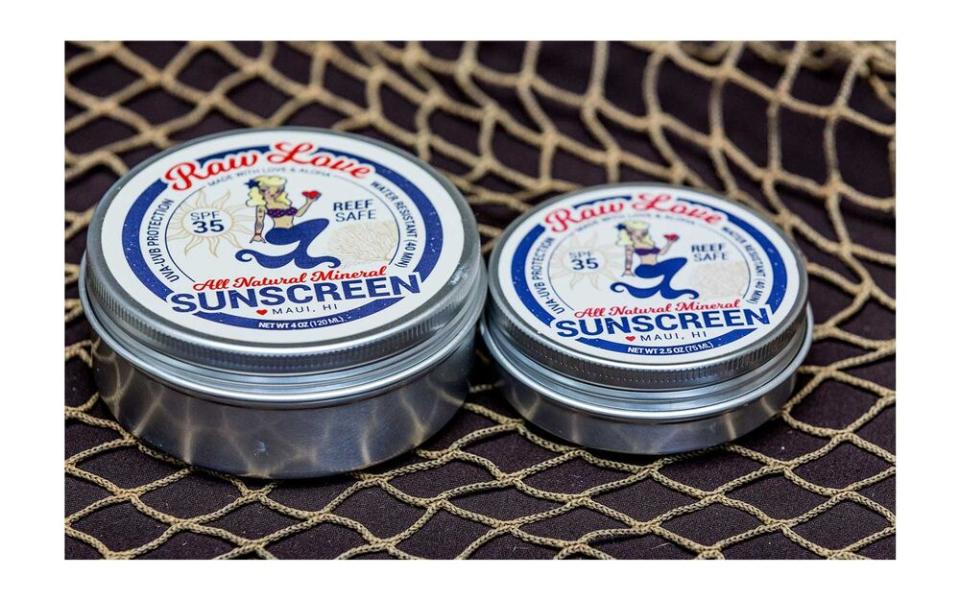
The founder of Raw Love, a Maui-based company, created this reef-safe sunscreen because she was looking for a non-toxic alternative to regular sunblock. This sunscreen is very concentrated so you can apply just a little to protect your skin. It contains cold pressed unrefined coconut oil, raw shea butter, non-nano zinc oxide, sesame oil, jojoba oil, and beeswax.
To buy: amazon.com, from $18
Art of Sport Skin Armor Sunscreen Lotion
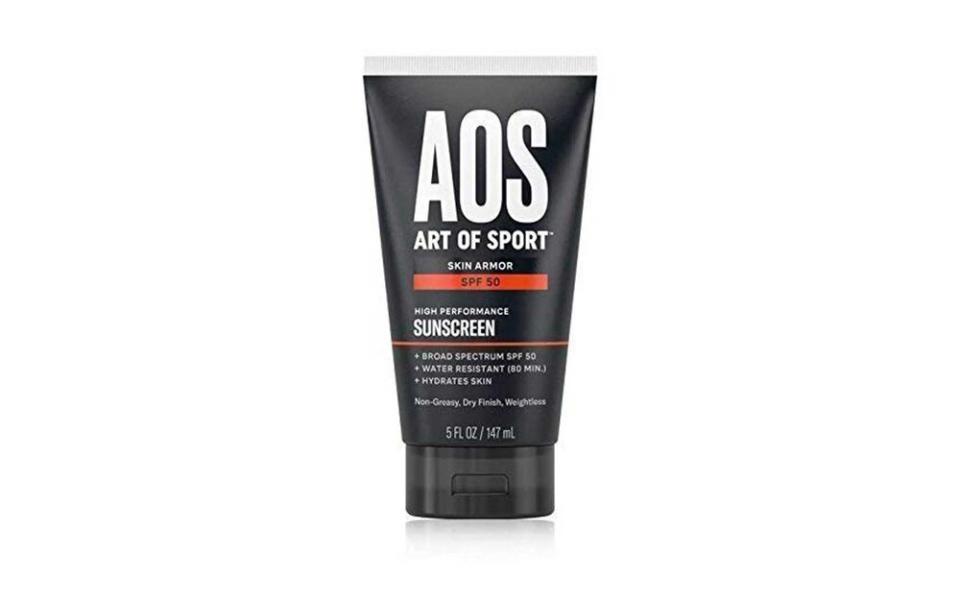
Made for athletes, this heavy duty SPF 50 sunscreen is water-resistant for up to 80 minutes, so you can get your surf, swim, and sweat on without worrying about burning — or harming the ocean's ecosystem.
To buy: amazon.com, $12
Hello Bello Sunscreen Lotion
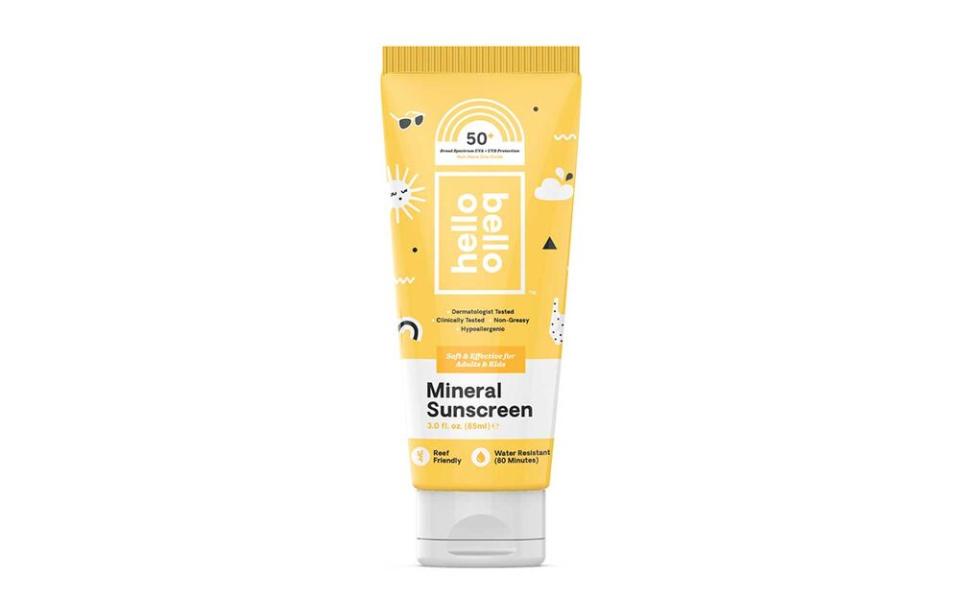
From Kristen Bell and Daz Shepherd's line, this top-rated sunscreen is not only reef-safe, but it's the only FDA-approved sunscreen that protects against all three types of UV rays (UVB, UVA2, and UVA1). It's also vegan and cruelty-free.
To buy: walmart.com, $9

